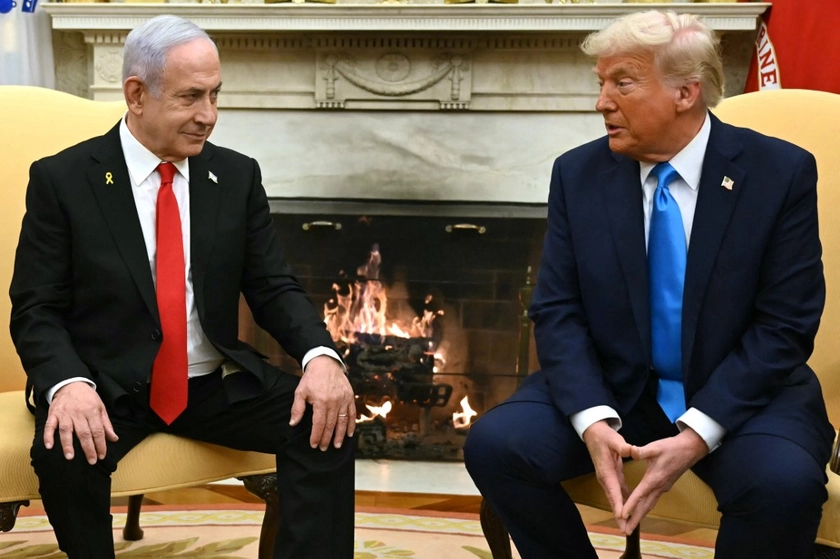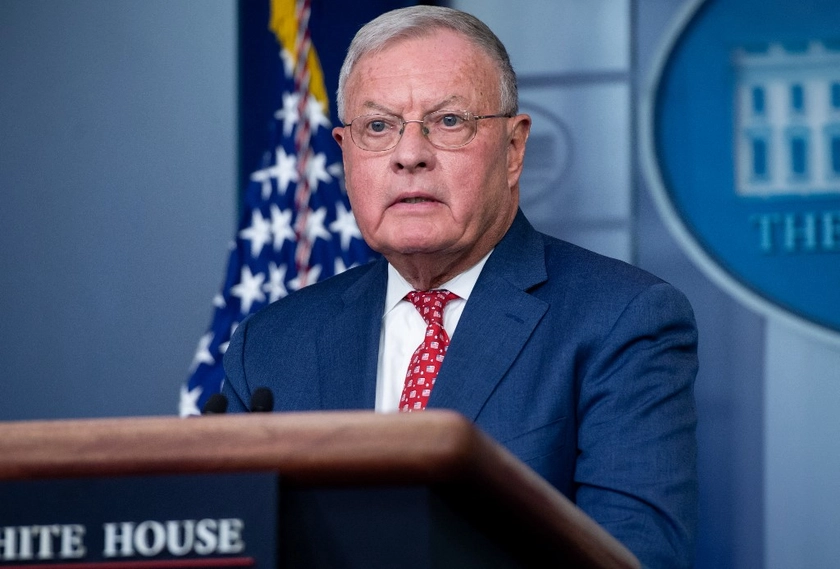President Trump tapped Marco Rubio as Secretary of State and Mike Waltz as his future National Security Adviser. Both are seen as relative hawks on Russia - or at least much less enamoured of President Putin than some of their GOP brethren. It could be a lot worse for Ukraine.
That said the reality is that both Rubio and Waltz will likely follow the orders of their boss, Trump. And with Trump’s foreign and national security team being released focus is shifting to Trump’s promise to bring peace in Ukraine within days of taking office.
JOIN US ON TELEGRAM
Follow our coverage of the war on the @Kyivpost_official.
This seems very ambitious and will likely test Trump’s deal making skills to the full. Yet the reality is that while both Ukraine and Russia still have the capability to fight a very long war still from here both have an interest in cutting a deal now, depending on the terms. With this in mind it is interesting to consider the demands/objectives of the various sides, and potential outcomes:
Putin wants:
* to keep all the territory he currently occupies;
* An administration in Kyiv which either defers to Russia for all key security related isssues/takes Russian interests into account, so falls under Russia’s strategic umbrella;
* To keep Ukraine vulnerable to future Russian advances. I think we have to recognise that Putin’s overall game plan is to make an independent Ukraine as weak as possible to create future opportunities for Russian intervention to secure strategic control over the entire country. Without a shadow of a doubt Putin would view any territorial concessions secured now as simply base camp for future land grabs over Ukraine. So Putin would want: no NATO, ideally neutral/demilitarised status for Ukraine to ensure maximum future vulnerability;
Air Trackers: French Air Force Launches Top-of-the-Line Fighters on Dicey Deep Black Sea Patrol
* Ukraine to resort back to the Federal, decentralised structure hinted at in the Minsk process where occupied territories have some veto over the country’s orientation - giving the seven million plus voters in occupied territories the ability to vote/influence national Ukrainian elections and the country’s future orientation.
Putin wants a weak/destabilised country which Russia can exploit in the future thru future intervention to undermine its sovereignty and extend Russia’s control over the country.
* All sanctions lifted.
Ukraine obviously wants the opposite:
* All territories back, ideally back to 1991 borders, but if not, certainly back to end of January 2022 settings;
* Security - there is no economic development, and thereby social and political stability, without security. Ideally NATO membership, if not cast iron security guarantees from key powers. I am not actually sure this counts for much though given experience of the Budapest Memorandum, so Ukraine likely will want assurances that it will be given all tools to defend itself. The idea is to give Ukraine the same status to the West as Israel and South Korea - they get the full spectrum of Western military conventional miitary kit so as to be confident of warding off future Russian aggression;
* Economic development - assurances that its economy can develop to the point that it can economically sustain its own defence. It is important also to think that successful economic development is key to ensuring social and political stability as millions of service folks will be returning home expecting a better life. If there expectations are not delivered the risk is social and political instability which Putin will play on.
Successful economic development likely will depend on adequate financing (as will security/defence) and providing a cast iron EU accession perspective so as to anchor reforms and green light private sector investment. From a funding/financing perspective given a likely recovery/reconstruction cost of of $500 billion to $1 trillion, the annual ticket over say a twenty year period is likely to be $50 billion. Can Ukraine be sure the West will stump this up? If not that Ukraine likely will focus on the confiscation of the $330 billion in CBR assets in Western juridciations. This could fund both the defence of Ukraine - it could be used to anchor US support under Trump to Ukraine via a big long term arms procurement programme - plus recovery and reconstruction.
Russia will be pushing for the return of these immobilised CBR assets and will likely refuse to pay reparations. It is key to Ukraine’s long term financial viability that the West stands up to Russia and refuses to give those assets back. Without access to these assets Ukraine will not be financially viable - to defend itself or to ensure succesful post war recovery and reconstruction.
For Europe
* In line with Ukraine, for Russia to respect Ukraine’s territorial integrity and hence to return Ukraine to its 1991 borders - it is worried about others exploiting the opening of the Pandora’s box;
* A halt to Russian aggression/expansionism - an early end to the war would be viewed favourably in Europe, but not if the price is a victory for Russia, or a Ukraine so undermined that it either ends up being destabilised in the future to then being exploited by further Russian invasion, which might see it fully fall under Russian occupation. The latter would be a disaster for Europe as it would risk tens of millions of Ukrainians moving West - risking social and political instability in Europe and the further rise of anti immigration sentiment further fuelling populist forces. It would also risk the loss of Ukraine’s now huge military industrial base to Russia - resurrecting Russia as a military superpower in Europe and then serving as a further huge risk of further Russian expansion across the region.
* Europe is aligned with Ukraine in wanting security for Ukraine - albeit many European states are unwilling for that to be at the cost of inviting Ukraine to join NATO. They want security in Europe, but seem unwilling to pay the ultimate price for that. Many are happy to free ride either off brave Ukrainians fighting on the front line or the US security guarantee/cheque book.
* Europe now has an absolute strategic imperative to try and counter the long term threat from Russia. Irrespective of what happens in any peace deal over Ukraine. Europe absolutely now has to invest in its own defence and reduce its reliance on the US. I think this also suggests no early return to business as usual with Russia. The US might see China as a its number one strategic threat, well for Europe it is not China but Russia. This suggests Europe will be slow to ease sanctions on Russia, that is unless Russia pulls back from Ukraine and provides sufficient assurance to Europe that is is no longer a threat. It will be hard to quickly provide that assurance and especially as long as Putin remains in power in Russia.
* EU accession - they understand the importance to Ukraine of membership, and are willing to pay lip service to it, but are worried as to whether Ukraine’s past rule of law/corruption challenges make it a difficult pill to swallow in reality. There is a contradiction here - early Ukrainian membership is likely key to its successful economic development but they are mindful of the experiences of the likes of Bulgaria and Romania where accelerated membership left key structural problems unaddressed.
* Financing - supporting Ukraine in the war is currently costing the West $100 billion a year, and with the US having covered 42% of the cost so far, Europe is nervous about having to cover the full nine yards should the US walk away. Zelensky has put the reconstruction costs at $800 billion and counting which would suggest that the costs of rebuilding the country post war will also be similarly huge, and again Europe has been unclear how it will cover the costs. There is a €50bn MFA from the EU to cover the four year period 2024-27 but this does not really touch the sides of the needs. The $50bn ERA from the interest stream on the $330 billion immobilised Russian assets has taken a year to put together and still seems to be an unreliable source of financing without real assurance as to whether the underlying assets will remain beyond Russia’s reach. What happens if Russia secures the return of these assets as part of any peace deal? Who funds recovery and reconstruction then?
The US under Trump?
* Trump promised peace in 24H on assuming office back in the WH, so there is something of a credibility issue herein for Trump. Trump will want to show he can bring peace quickly and will want to be hailed as a potential Nobel peace prize winner;
* But surely he will want to avoid being blamed for a potential Afghanistan style collapse of Ukraine. It is hard to imagine that even Trump would want peace at any cost, and especially if the price is the total collapse of Ukraine to Russia (see risks to Europe as above). This would be a gift to Putin and make Trump appear weak, and an idiot. It would embolden Russia, likely China and other U.S. adversaries.
* Trump might be willing to play hard ball with Russia, threaten to up arms sales to Ukraine to force compromise by Putin. Trump will find this easier to sell at home as a win if arms are funded by Europe and/or immobilised Russian assets. The US could still benefit from an extended war and increased arms sales to Europe and Ukraine. Think of all the US jobs won/secured.
Probably the outline of a deal will involve:
* Lines get frozen along the current front, but no sanctions moderation on Russia until a long term agreement is reached as to the future of these lands;
* No early NATO membership for Ukraine but it gets assurances that it will be provided with the full range of Western kit to defend itself. Europe will agree to fund an increasing share of Ukraine’s needs while immobilised Russian assets might be eventually tapped for this same purpose.
* Some longer term commitment to EU accession for Ukraine;
* Feels Europe will eventually rollover on the provision of the $330 billion in immobilised CBR assets for Ukraine to purchase its own defence equipment and partially fund its own recovery and reconstruction. These funds will be partially used to fund weapons purchases from the U.S. - the idea of a Trump Ukraine Victory Fund to anchor the US - Ukraine strategic relationship.
But cutting a deal will be difficult and, if faced with a peace deal that leaves Ukraine weak/exposed and ultimately not sustainable long term, Ukraine might opt to fight on, and given its own security vulnerabilities to Russia, Europe would have no choice but to continue to back Ukraine. In that scenario would the US refuse huge arms purchase orders from Europe? I doubt even Trump would do that and especially when the US will still need assistance from Europe in its own longer term battle for hegemony with China.
Reprinted from the author’s @tashecon blog! See the original here.
The views expressed in this opinion article are the author’s and not necessarily those of Kyiv Post.
You can also highlight the text and press Ctrl + Enter











